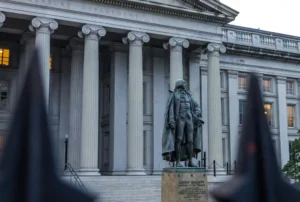
March 17, 2014; Washington Post
This is “Sunshine Week,” when government agencies pat themselves on the back about their openness. Unfortunately, the federal government hasn’t quite lived up to the promise of President Obama to be the most transparent administration in history.
The Center for Effective Government issued a government-transparency report card that gave failing grades to seven of 15 agencies. An Associated Press review of federal government transparency concluded, “The Obama administration more often than ever censored government files or outright denied access to them last year under the U.S. Freedom of Information Act…The administration cited more legal exceptions it said justified withholding materials and refused a record number of times to turn over files quickly that might be especially newsworthy. Most agencies also took longer to answer records requests.” The National Security Archives in its own report found, according to Josh Hicks at the Washington Post, “that 54 percent of all agencies have ignored directives that Obama and Attorney General Eric Holder issued in 2009 calling for a ‘presumption of disclosure’ with FOIA requests.”
It is very difficult for the small cadre of people calling for increased transparency in the nonprofit sector to get any traction when the “most open” administration is becoming less rather than more open.
Sign up for our free newsletters
Subscribe to NPQ's newsletters to have our top stories delivered directly to your inbox.
By signing up, you agree to our privacy policy and terms of use, and to receive messages from NPQ and our partners.
Commenting on federal government openness, two senators were guarded about progress to date. Senator Patrick Leahy (D-VT) reported on a Judiciary Committee hearing he chaired last week that revealed what he described as a “mixed picture.” Interestingly, he acknowledged that the “disclosures by Edward Snowden about government surveillance have sparked a public debate that we should have had more than ten years ago…. We could have avoided this scenario [regarding Snowden’s revelations] had the government simply been more forthcoming about its intelligence activities from the outset.”
While touting improvements under the Obama administration, Leahy acknowledged the growing use of exemptions to withhold information—a 41 percent increase between 2011 and 2012 in agencies citing FOIA Exemption 5 to withhold information from the public. Combined with the statistics cited by Hicks, Leahy’s perception of a mixed picture may be rosier than the administration deserves on its current record of transparency.
Leahy’s Republican counterpart, Charles Grassley (R-IA), smartly pointed out that the nation’s ability to push government toward greater transparency requires intrepid watchdogs. “From investigative reporting by the media, to internal Inspectors General who audit federal agencies and courageous whistleblowers who step forward to expose waste, fraud or abuse they witness on the job,” Grassley wrote, “we need all hands on deck inside and outside of government to hold the public’s business to account.”
To be fair to President Obama, it seems like the whole nation is talking about increased transparency but resisting it as much as ever, and the problem is not just at the federal level. Watchdogs have to be active in testing public disclosure openness at all levels of government and of society. For example, student journalists from the University of Maryland asked 83 public universities for copies of their codes of conduct applicable to athletic departments and teams. The University of Delaware and the University of Central Florida flatly denied the student journalists’ request; the University of North Carolina acknowledged receiving the request, but then chose not to respond with an answer one way or the other.
UNC-Chapel Hill is a state agency, and states aren’t doing any better than the federal government on transparency. An expert on government transparency, David Cuillier of the University of Arizona School of Journalism, is concerned that “there’s a clear trend toward increased secrecy in this country. I see it in my survey research of journalists and I also see it just on the ground, in what’s happening at state capitals and the federal government.” State and local reporters believe that “public information officers for agencies they cover are increasingly restricting access to officials and imposing other controls limiting their ability to report on government.”
During Sunshine Week, nonprofits should be doubling down on their commitment to expanding government transparency and openness. To do so, however, they should model the transparency they expect from government with transparency and openness themselves.—Rick Cohen












